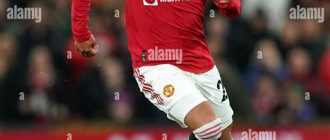In the modern era of the sport, goalkeepers play a pivotal role that goes beyond traditional defense. They are expected to excel in various aspects, becoming integral to both defense and offensive strategies. A player’s ability to react swiftly and make calculated decisions can determine the outcome of critical moments in the game.
Among the many skills required, one stands out as essential for modern goalkeepers. The ability to control the ball and make quick, accurate passes under pressure is now fundamental. This shift in responsibility has seen a new breed of players emerge, known for their composure and tactical intelligence on the field.
In this article, we explore the significance of these advanced techniques and their impact on the game, highlighting how these professionals shape the dynamics of play with their unique style and decision-making abilities.
Impact on the Modern Game
In today’s competitive environment, adaptability and a broad skillset have become essential. The role of players in defensive positions has evolved significantly, now requiring them to engage in strategies that previously were reserved for outfield athletes. A focus on versatility and quick decision-making allows them to influence the game’s tempo and effectiveness, both in defending and initiating offensive movements.
Modern systems demand individuals to be comfortable not only in their core responsibilities but also in supporting the team’s overall strategy. Their ability to anticipate and react swiftly has reshaped how teams approach various aspects of the game, from building up attacks to handling high-pressure situations.
How Goalkeepers Impact Game Strategy
Goalkeepers play a crucial role in shaping the tactics of any team. Their position on the field offers them a unique perspective, allowing them to influence both defense and attack. The decisions they make in positioning, distribution, and communication can alter the pace and flow of the match.
A key aspect of their contribution is their ability to read the game and make swift decisions. Whether choosing to initiate quick counter-attacks or slowing the play to manage the tempo, goalkeepers have the power to dictate the rhythm of the game.
Furthermore, their communication with defenders ensures organization at the back, reducing the risk of defensive lapses. Effective coordination between them and the rest of the team helps in maintaining structure and avoiding dangerous situations.
Ultimately, the presence of a skilled goalkeeper can boost a team’s confidence, enabling more aggressive tactics, knowing there is a reliable figure at the back to
Footwork Techniques of a Notable Goalkeeper
Mastering movement on the field is essential for any goalkeeper. The key to effective performance is precise coordination and quick decision-making, allowing the player to react swiftly to dynamic situations during a match.
One of the critical techniques involves using lateral motion to cover the goal line efficiently. By maintaining balance and keeping a low center of gravity, the player can shift direction quickly and minimize the time spent recovering from dives or stretches. This agility helps ensure the keeper remains well-positioned at all times.
Another fundamental skill is distributing the ball accurately. This requires not only power but also precise targeting to launch counterattacks or relieve pressure. Quick, calculated releases with various passing techniques allow the keeper to connect with teammates and regain control of the game.
In addition to lateral movement and passing, handling crosses and high balls is crucial. Timing and judgment are vital in deciding when to catch, punch, or clear, ensuring the defense remains organized and ready for any upcoming threats.
Developing Precision in Ball Distribution
Precision in distributing the ball is a crucial aspect of the game. The ability to make accurate passes not only ensures possession but also opens up opportunities for offensive plays. Mastering this skill requires both technical expertise and a deep understanding of the game’s dynamics.
- Focus on target identification before making a pass.
- Enhance vision to spot potential openings on the field.
- Maintain balance to ensure control during delivery.
- Develop the ability to switch between short and long-range passes depending on the situation.
Consistency in distribution not only aids in controlling the pace of play but also contributes significantly to defensive stability. By refining the technique, players can greatly influence the overall strategy of the team.
The Evolution of Goalkeeper Foot Skills
Over time, the role of the goalkeeper has significantly expanded beyond traditional shot-stopping. Modern goalkeepers are now expected to exhibit advanced abilities with their lower limbs, contributing to both defensive and offensive play. This shift reflects the evolving demands of the game, where precision and agility with the feet have become crucial components of a goalkeeper’s skill set.
Historically, goalkeepers focused primarily on blocking shots and commanding the area within the goal. However, as the game progressed, the necessity for goalkeepers to participate in building play from the back emerged. This change has led to the development of various techniques and training methods aimed at enhancing footwork.
Today’s goalkeepers are not only adept at making crucial saves but also excel in passing and controlling the ball with their feet. They are trained to perform complex maneuvers under pressure, showcasing skills that were once exclusive to outfield players.
| Aspect | Traditional Approach | Modern Approach |
|---|---|---|
| Footwork Training | Basic blocking and clearance | Advanced passing, dribbling, and distribution |
| Ball Control | Minimal emphasis | High emphasis on ball control and accuracy |
| Involvement in Play | Primarily defensive | Both defensive and offensive roles |
The progression of goalkeeper foot skills highlights a broader trend within the sport, where versatility and technical proficiency are increasingly valued. This evolution underscores the need for goalkeepers to be well-rounded players capable of contributing to various aspects of the game.






